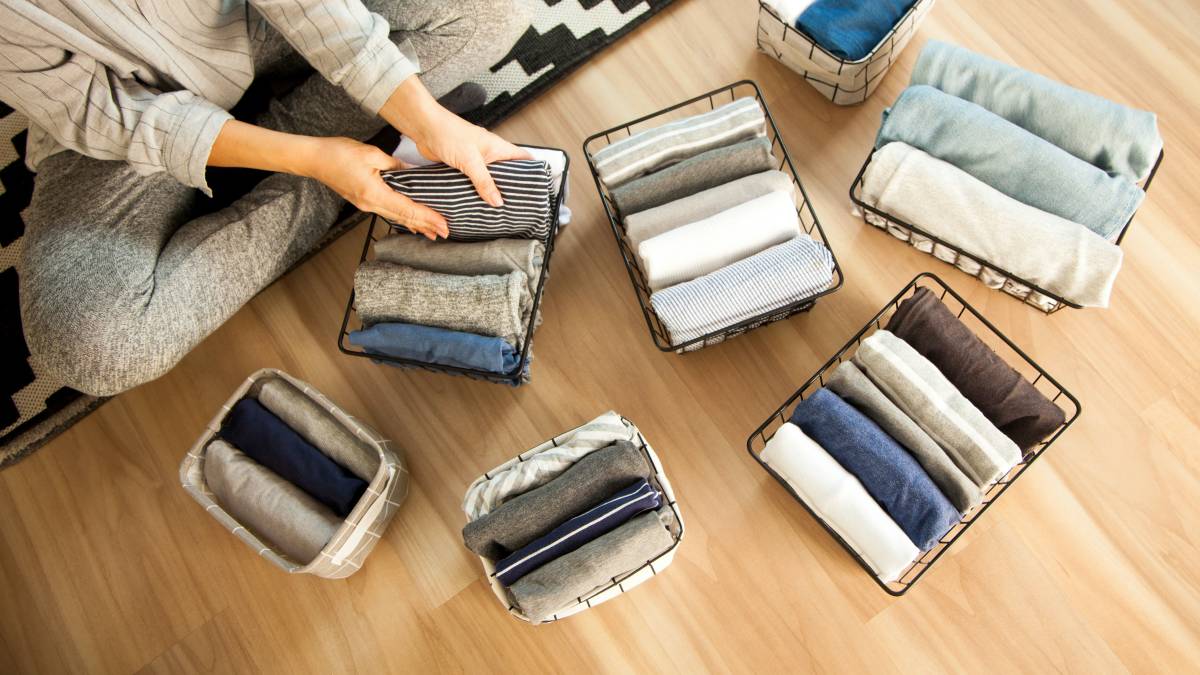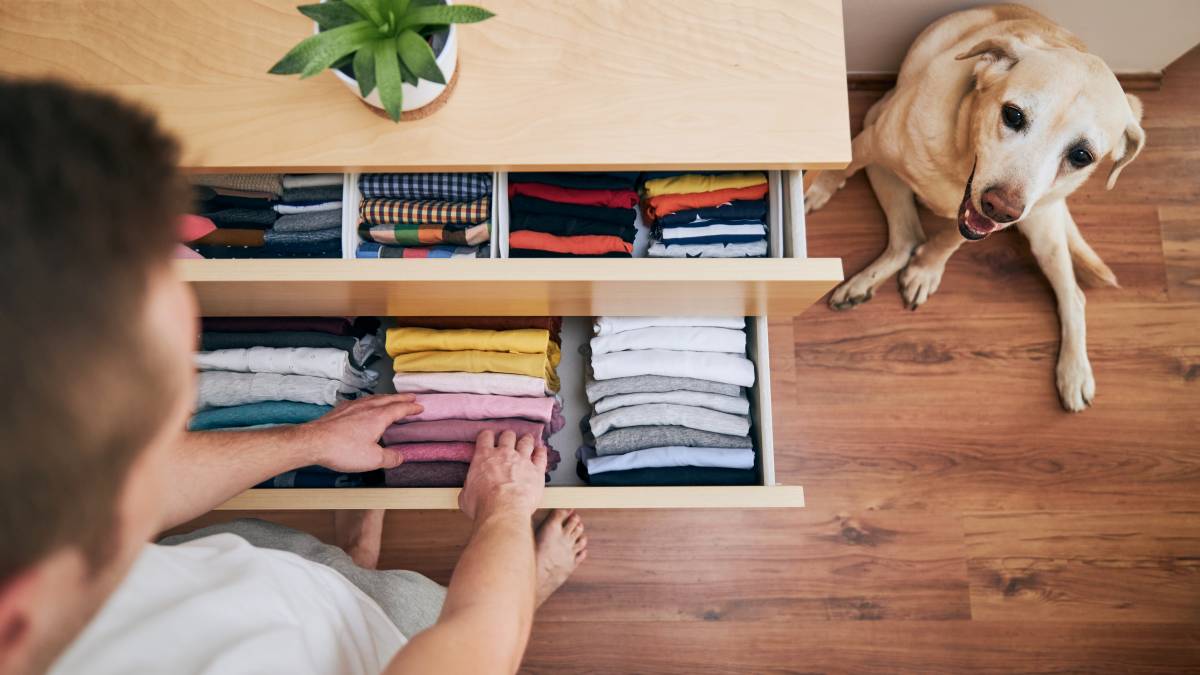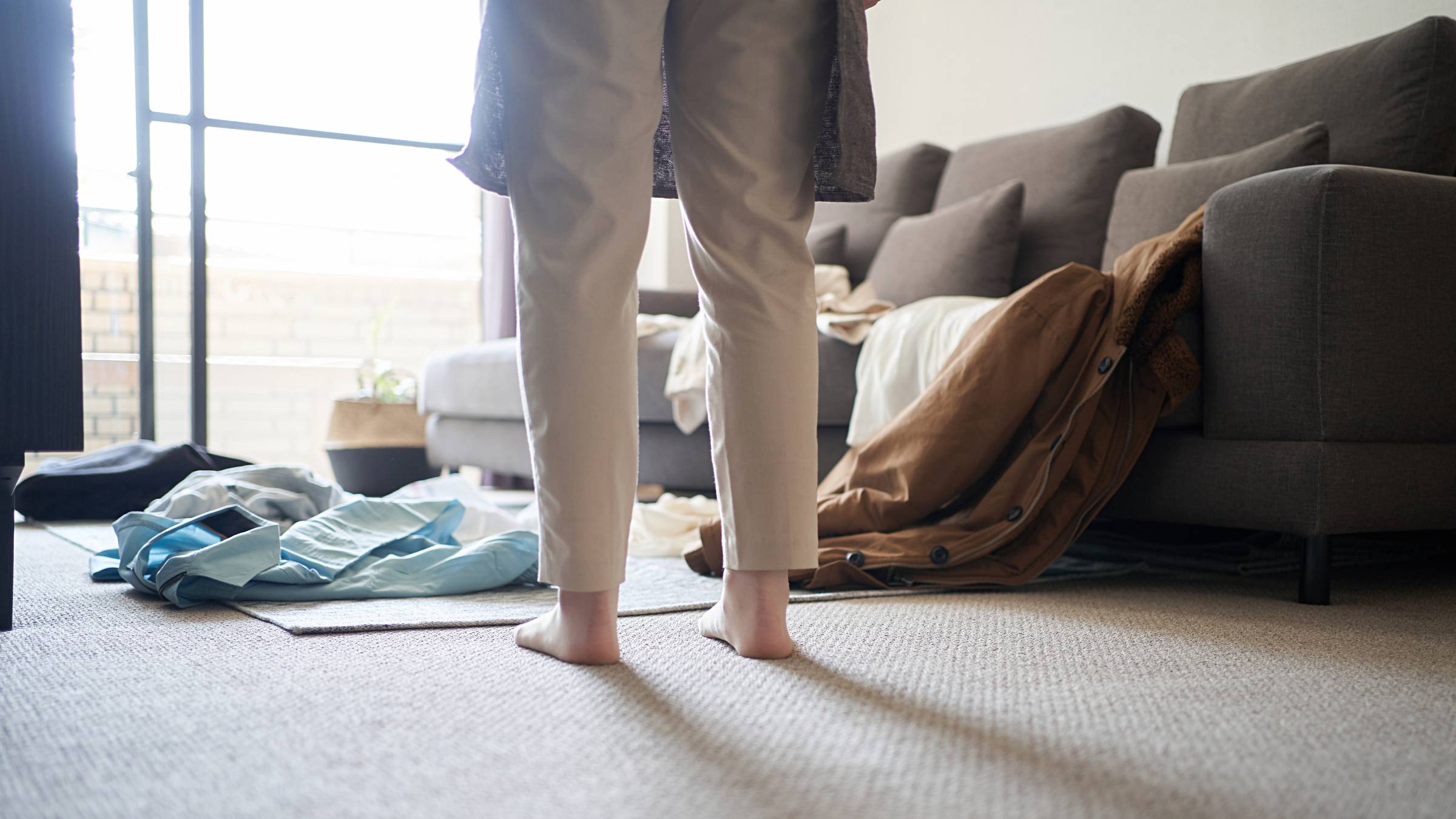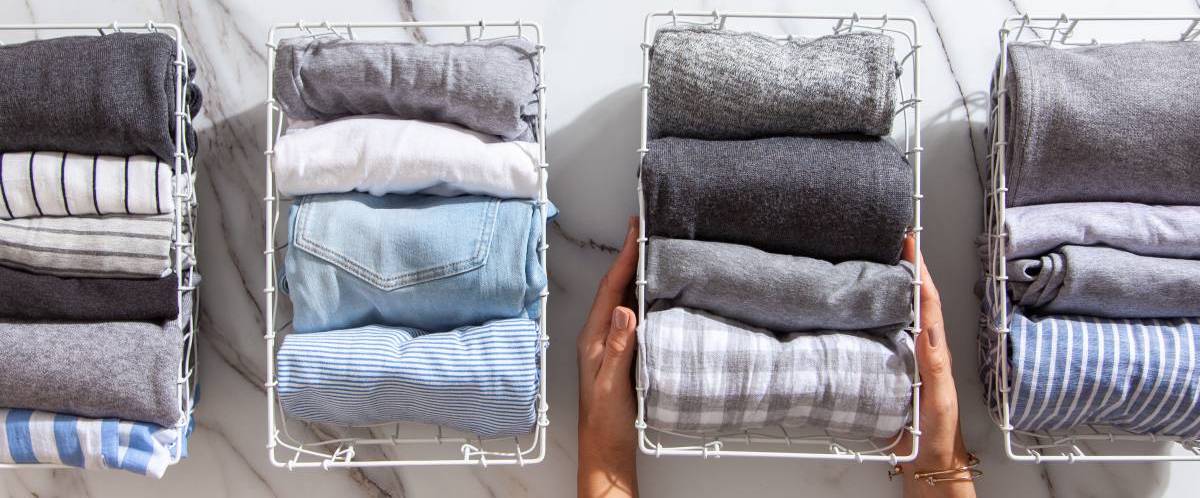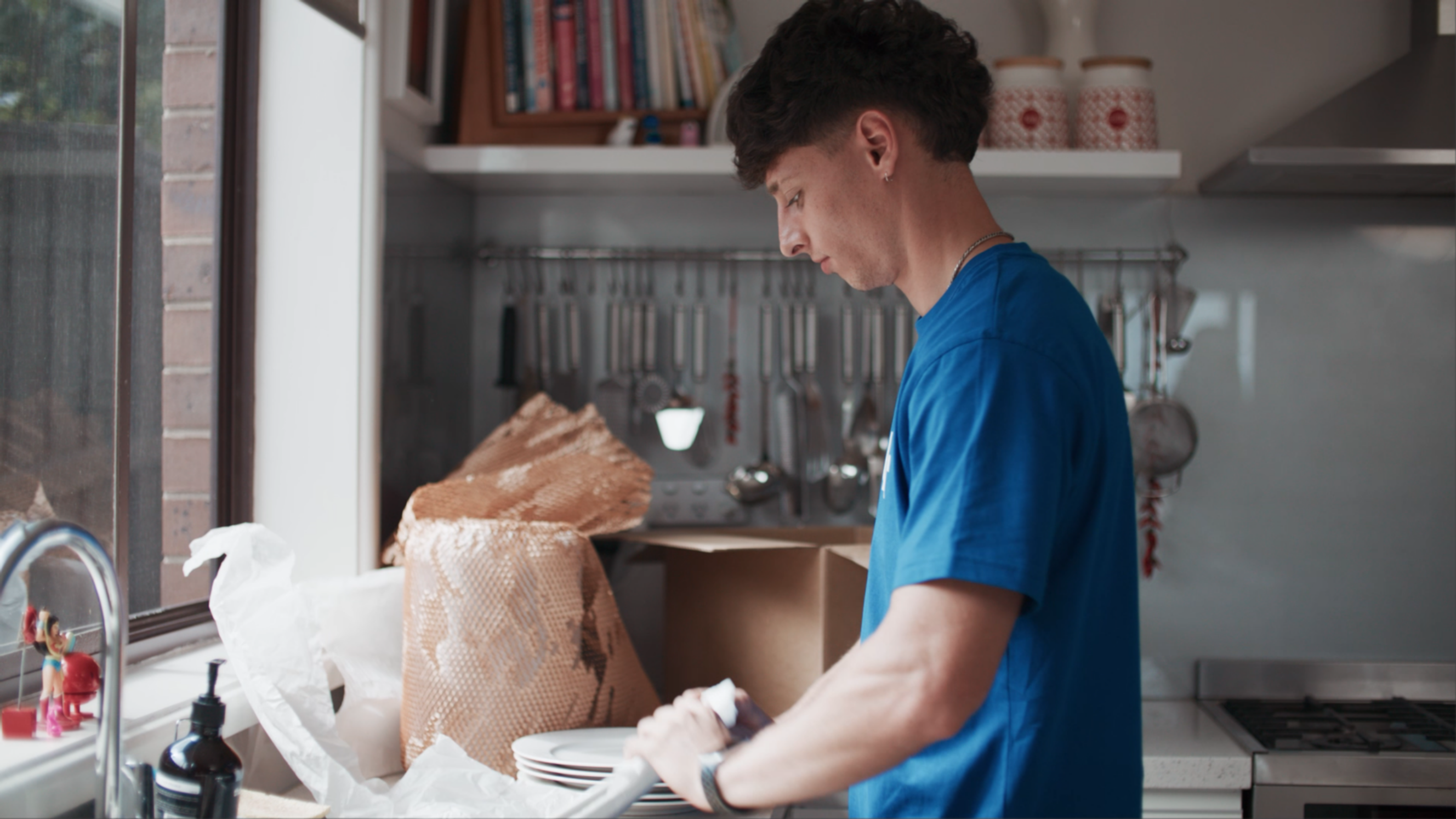
- Home/
- Guides/
- Decluttering/
- How to Declutter Your Home Before Moving
How to declutter before moving house
A solid plan can save you lots of time and energy during your move.
Last Updated on

Written by Chin S.
Staff Writer

Reviewed by Theo T.
Expert Removalist
Read more about our contributors
Key Takeaways
Decluttering 4–6 weeks before moving prevents you from packing broken items and missing opportunities to sell valuable belongings.
Trying a decluttering method can help simplify and speed up the process of tidying your home.
Starting with easy categories like clothes builds momentum before tackling emotionally difficult items like family photos.
Not many of us are natural minimalists. Plenty of us are more, let’s say, maximalists. Clutter seems to be magnetically attracted to us, and honestly, we're secretly waiting for a knock on the door from the producers of the show Hoarders.
That's why moving house can sometimes be a relief; you are forced to go through all your possessions with a fine tooth comb and clean up your whole household. The golden rule is to keep only the things you love or are helpful and get rid of whatever you no longer need or want. But how do you create a more streamlined life?
Read on for some beneficial tips and processes for how to declutter before moving house.
Why decluttering before moving house is essential for your big move
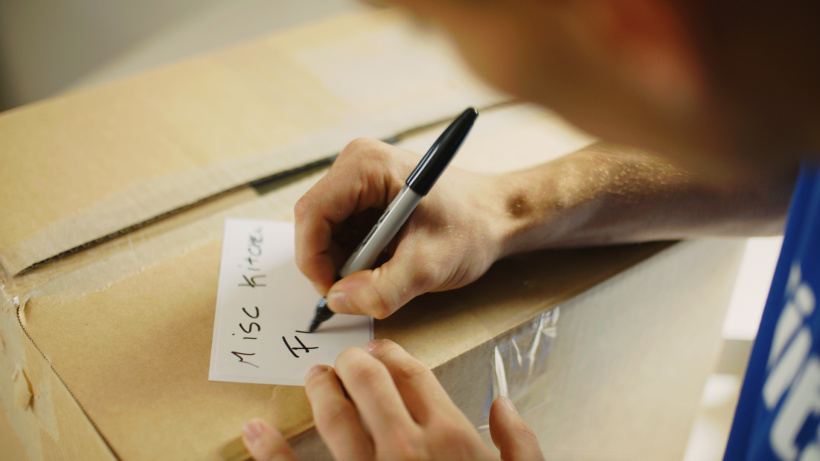 Labelling a moving box.
Labelling a moving box.
Every item you pack costs time and money to transport, so why waste effort hauling broken appliances, outgrown clothes, or that exercise bike gathering dust? Remember that the fewer items you move, the less you’ll spend on boxes, packing materials, and truck space.
In fact, decluttering before moving offers three major benefits:
Faster packing and unpacking: You’ll spend less time wrapping and labelling items you don’t actually want in your new home.
Easier settling in: Unpacking becomes simple when every box contains items you’re genuinely excited to place in your new space.
Fresh start mindset: Moving only your favourite and most useful belongings helps you create the lifestyle you want in your new location.
If decluttering feels overwhelming, hiring a professional decluttering service through Airtasker can actually save you money compared to moving everything.
Professional decluttering services costs may vary. If you only need one person to help, the rate could be around $45 to $65 per hour. For two people to organise and move heavy furniture, that could run about $100 to $120 per hour, which may require you to add the cost of rubbish removal.
Organisation is very important when moving; the more organised everything is, the faster the move will be.
You can put everything you're going to throw away together and hire a rubbish removal service, which will give you a fixed price to dispose of all your waste. Or, you can wait for your area's council pick-up and hire pros to help move the garbage to the front of your property.
Decluttering methods you can try
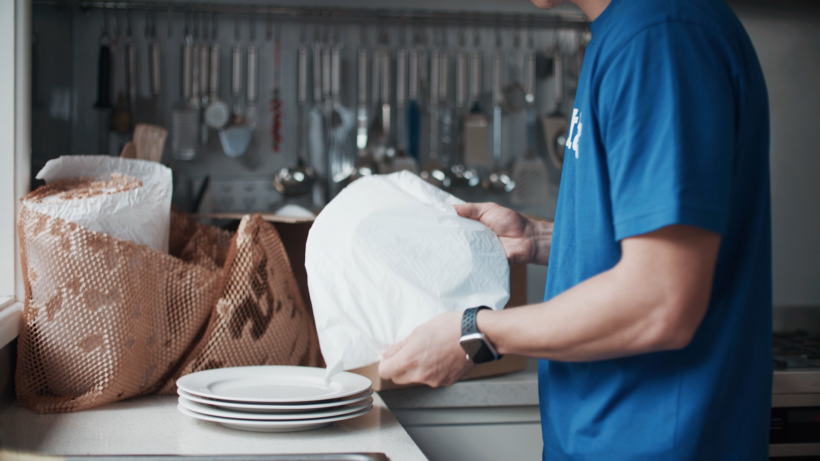 Packing what you only need.
Packing what you only need.
Things can be easier and more efficient when sticking to the tried and tested processes of reformed hoarders who have come before you. Here are some of the popular ones:
The Four Box method
There are many ways to purge successfully. Some decluttering experts advocate the Four Box Method, where the idea is to go through each room in your home armed with separate boxes, one for each of the following:
Things you want to keep
Items to sell or give to charity
Things to chuck away
Anything you're still undecided about
The KonMari method
Devotees of the Japanese KonMari method swear by its use. The goal is to pick up each item you own and decide to keep it only if it “sparks joy” or if it is useful.
Swedish death cleaning
The most metal method, Swedish death cleaning, is a new decluttering technique where you downsize your belongings in recognition of the stark fact that one day, you won't be able to take anything with you and that your junk will only be a burden for your loved ones.
Too dark and not for you? You've always got the Four Box Method...
9 tips to help you declutter for your move
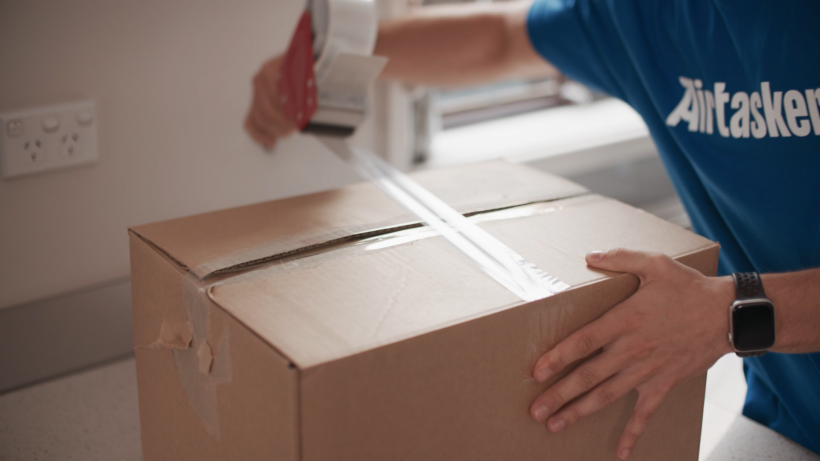 Packing one room at a time.
Packing one room at a time.
So, the task of decluttering before a move is upon you; we recommend considering the following to make the whole thing as stress-free (maybe even as fun?) as possible.
Tip #1: Get motivated and do not procrastinate
The hardest part of decluttering is starting, so create a realistic schedule based on your moving timeline. If you have 4-6 weeks before moving, dedicate one full day each weekend to decluttering, plus 1-2 hours on weekday evenings for smaller tasks. For shorter timelines, block out specific time slots in your day, like 7 to 9 am before work or 6 to 8 pm after dinner, to go through one room or category at a time.
The biggest rookie mistake is leaving decluttering until the week before moving, when you’re already juggling packing, removalists, and paperwork. In fact, last-minute decluttering creates unnecessary stress and leads to poor decisions:
You pack everything: No time to sort properly, so broken and unwanted items get moved to your new home
You hastily discard useful items: Quick decisions often mean throwing away things you’ll need later
You miss money-making opportunities: No time to sell valuable items or organise charity pickups properly
Tip #2: Tackle one room at a time
Whatever method you use, most decluttering experts advise tackling only one room at a time rather than attempting to declutter your whole house in one go. Be sure to give yourself enough time, so you don't stress out and become overwhelmed with the magnitude of the job.
If, however, you are moving soon and want to declutter before moving quickly, don't be afraid to call in help from a professional decluttering service (which can be surprisingly affordable).
Tip #3: Get an assistant
Decluttering doesn’t have to be a solo mission, and having an extra pair of hands can make the process much faster and less overwhelming. An assistant’s role is to help you physically sort through items, hold things up for you to decide on, and keep you motivated when decision fatigue sets in.
You can also assign your assistant to handle the physical work, such as boxing donated items, loading your car for charity runs, or even taking photos of items you want to sell online. They can also help tick off completed areas on your moving checklist, ensuring you stay on track with your timeline.
Tip #4: Hire a decluttering service
Go the whole hog and engage someone to assist you with a full decluttering service by completely reorganising all your belongings room by room, sorting and tidying, and removing excess clutter – with your approval.
Your helper can undertake all kinds of decluttering tasks, like organising your DVD and CD libraries, rearranging your kitchen cupboards and pantry, or reorganising your clothes. They can also make repeated trips to dispose of junk or take clothes to Vinnies for you!
Tip #5: Don't let old memories get the better of you
Sentimental items are the hardest category to declutter because every photo, letter, or keepsake triggers a memory and emotional attachment. However, keeping everything “just in case” or because it reminds you of someone can significantly increase your moving costs when you’re paying by weight or truck size.
The best tip here is to create a realistic limit for keepsakes by designating one memory box per family member or setting a shelf space in your new home. For truly precious items, consider digitising documents, letters, and photos so you can access these memories anytime.
Tip #6: Utilise the power of piles
Another decluttering hack is separating sorted items into different piles that you can see. This will help determine their fate! For example, you can have piles for:
Keep
Trash
Donate or sell
Recycle
Customise your piles to suit your needs (you may have a storage one, for example), but this visual process can sometimes be very helpful!
Tip #7: Involve your kids
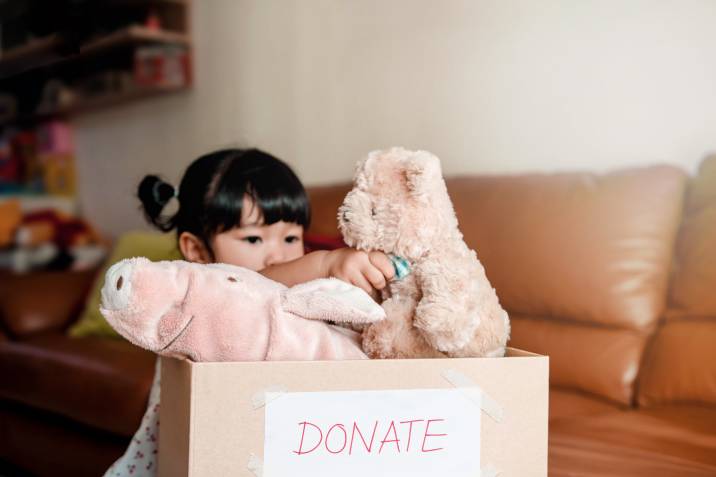
If you have children, involve them, especially if you are decluttering their belongings. Ask them questions like "do you still play with this toy, or would you like to let another kid enjoy this?" Teaching the emotional skills and know-how to declutter now will help them when they are facing a move as an adult!
Tip #8: Schedule some dedicated decluttering time
Not everyone likes to declutter, so putting it on your schedule increases the chance of it actually happening. Lock in one to three hours of dedicated decluttering time weekly, on a specific day to create a routine. Pop on your headphones, relax your mind, and tune everything out so you can focus on the task at hand. Who knows, it may even be meditative.
Tip # 9: Make sure you cover everything
Decluttering can be a long process, but you'll reap the benefits, especially if you go through everything. Search the darkest corners of your cabinets, pick apart the junk drawers, and really think about every piece of clothing. If you leave no stone unturned, your move will become much simpler.
Ask yourself: "Did I use this in the past year?" If you didn't use it, chances are you won’t use it again and they’re good to dispose of.
A fresh start, one box at a time
Think about this; whatever you don’t go through to declutter now, you’ll have to move it and go through it at some point later on. It may as well be now so that when you get to your new home, you are starting fresh with the items you want and need (or make you happy).
Decluttering is a beneficial exercise. If you need a little help, there are plenty of experts on Airtasker that can help you sort, pack, throw away, and move house. Re-design your surroundings today!
Learn more about our contributors

Written by Chin S.
Staff Writer
Chin is a passionate hobbyist writer with a love for gardening, home improvement and beauty. She enjoys nurturing her small indoor plant collection, redecorating her space and exploring all things beauty. Through her writing, she shares her journey and tips for fellow enthusiasts.

Reviewed by Theo T.
Expert Removalist
Theo is the co-founder of KangPack Removals. He owns this business with his brother, and now it is one of the most trusted moving services in Sydney. With extensive experience in the field, he has helped hundreds of families with local and interstate relocations, ensuring each move is efficient and safe. His knowledge and commitment to quality service have established him as a true expert in the Australian moving industry.
The Reviewer Badge is awarded to individuals who are experts in their respective fields and evaluate the content to ensure its accuracy and relevance to the task at hand.
FAQs on decluttering
The 20/20 Rule is to be used when you are on the fence about something to keep or ditch. Basically, if the item costs less than $20 and would take under 20 minutes to replace, it's time for it to go.
Along with extremely heavy or overly worn-out items, you can trim your moving list with clothing that is easy to overdo and replace or bulky items like DVDs and books. These can be heavy and take up a lot of space when packing. Large electronic items like unused laptops or DVD players should also not be making the trip with you.
While this varies wildly based on the size of your house and the amount of clutter, in general, it can take anywhere between 4-6 days to thoroughly declutter your home.
Start decluttering the most high-traffic area, which is likely the kitchen or family room. Then, when you have finished, the next room won't seem as hard! If you are unsure where to start, it's always good to declutter room by room.
Contact your local charity shops to arrange a pickup, but make sure items are in good, saleable condition as they can’t accept broken or damaged furniture.
If they’re in poor condition, you can wait for your local council pick-up or hire a rubbish removal service. You can also hire a removalist through Airtasker to move larger items to donation centres.
Most Australian councils offer free bulk collection services for large household items, but you’ll need to book at least 4 weeks in advance. Smaller items like electronics, batteries, and chemicals should be taken to community recycling centres or council drop-off events.
Popular Australian platforms for selling clothes include Facebook Marketplace, Depop, eBay, Carousell, and Gumtree, each targeting different audiences and price points.
Find decluttering experts, fast
Find a decluttering expert
Related price guides
Related articles

How to organise your garage
Read more
